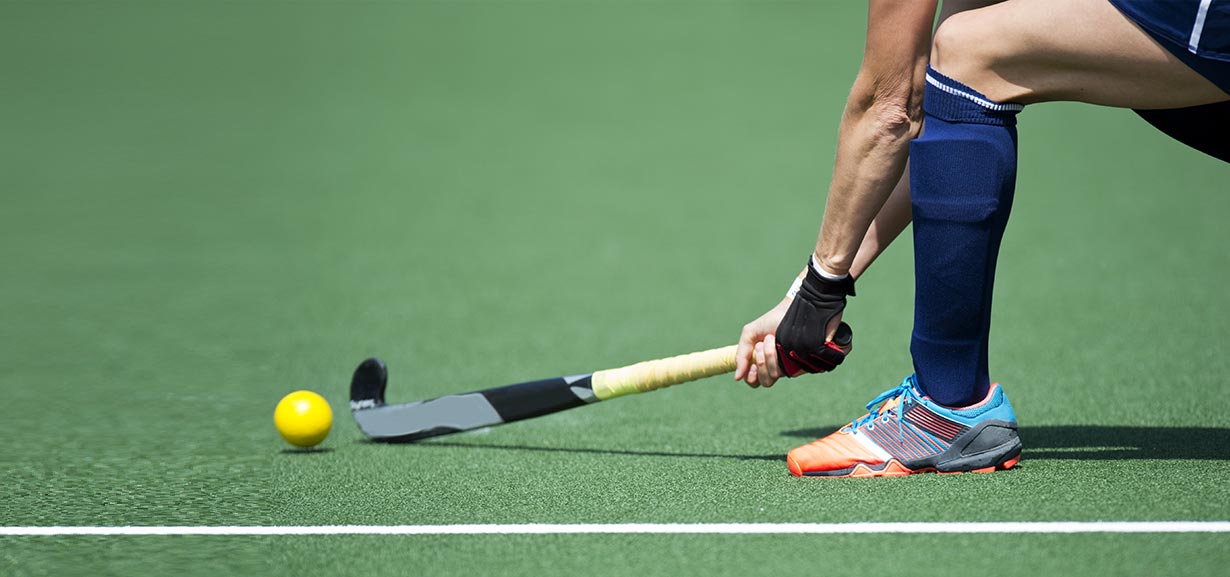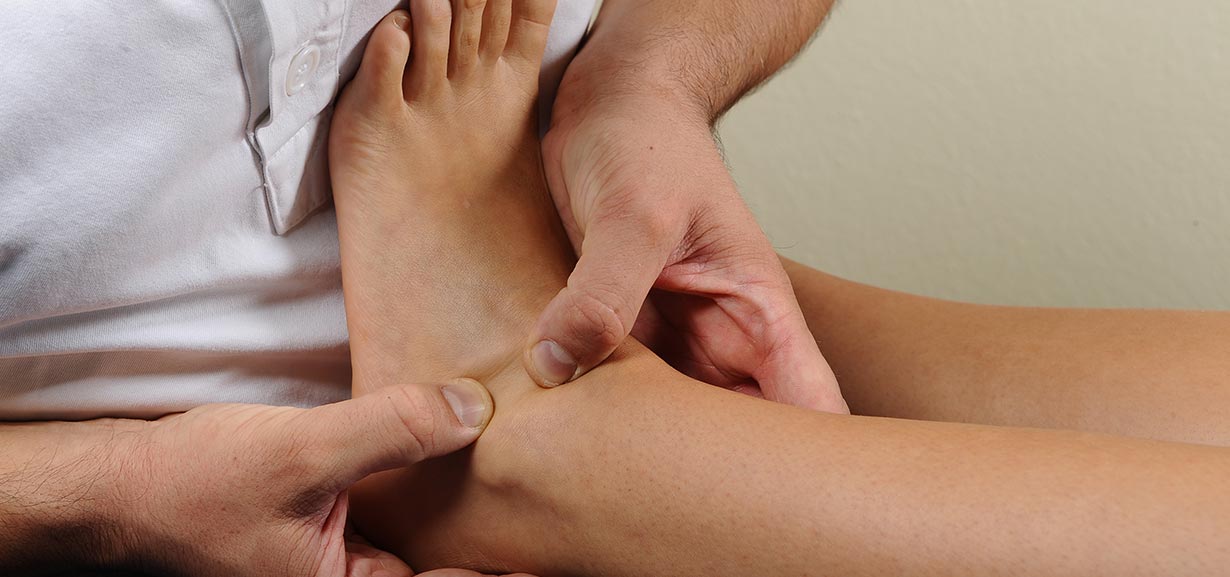Hockey Injury Prevention
Field hockey is played in 132 countries and is the second most played team sport after soccer. It is estimated that 15% of hockey players are injured during a single season, and that injuries cause players to spend 11% of the total hockey season training and playing at less than full capacity.
If you are nursing an injury, or are injury prone, then you should consider booking a consultation to get out in front of your issue and manage it before it sidelines you.
Book an appointment to manage your niggles before they become serious injuries
Injury Prevention Advice
Download Injury Prevention Advice
Common Injuries In Hockey
Shin Splints
Shin splints occur along the length of the shin in the lower legs. It can be caused by running too often on concrete or road surfaces or by overstraining of your muscles where they attach to your shin. The most common cause is overuse or overtraining associated with poor foot and leg biomechanics.
Typical repair time:
- Dependent on a number of factors including how long you have had the shin pain for, the extent of tissue damage and the presence of muscle guarding.
- Generally, the outlook is excellent for a full recovery but physical therapy may be necessary to get you back in the game! So don’t leave it too late to see you sports chiropractor
Ankle Sprain
An ankle sprain is a tear of a ligament/s usually on the outside of the ankle. It is one of the most common injuries in hockey. It typically occurs when a player rolls the ankle so that the sole of the foot turns inward. Swelling, stiffness, bruising and inability to weight bear often come hand in hand with an ankle sprain.
If you have applied RICE (rest, ice, compression, elevation) and the swelling hasn’t gone down or you still can’t weight bear on your foot then it is worth getting assessed by your sports chiropractor to determine the severity of your sprained ankle.
Typical repair time: Once again it depends on the extent of the damage but the average time for ankle ligaments to heal is 6 weeks. It is important to build the strength in the ankle ligaments and prevent the loss of flexibility in the calf and ankle to avoid re-injury.
Knee injury (ACL or cartilage damage)
Most often ACL tears occur when pivoting or landing from a jump or caused from a sudden cut/stop or a twisting movement. Your knee gives out from under you once you tear your ACL. Female athletes are known to have a higher risk of an ACL tear while participating in competitive sports. About 80% of sports-related ACL tears are "non-contact" injuries.
Typical repair time: Approximately 6-8 weeks. If it’s a grade 1 sprain (overstretched) or grade 2 sprain (partial tear) of the ACL then your Sports Chiropractor can treat your knee with the appropriate immobilisation or bracing, physical therapy and rehabilitation to progressively get you back on the field.
If you have completely torn your ACL then you will need to be referred to an orthopaedic specialist for treatment and unfortunately will have to sit the rest of the season out
Groin Pull
When moving side to side a lot of people tend to push off using their inner thigh muscles (adductors) attached to the groin. These muscles are often weaker and are prone to strain if you don’t strengthen and stretch your legs, hips and lower back appropriately.
Typical Repair time: Approximately 3-6 weeks if it is just a muscle or tendon strain. A mild groin strain can take 1-3 weeks with the correct stretching and strengthening program. A more severe strain will take 6 weeks or more and will often require you to stop playing for a short period of time.

The Process
Injury Prevention Process
We recommend coming in for an injury assessment and management plan for those of you out there that have pre-existing niggles and injuries that often cause issues throughout the season. The last thing we want to see is our clients sidelined in week three of the season. As such, we offer consultations that will allow us to determine the cause of your injury and how best to manage it in office with us and at home.
Initial Assessment
Step 1 is to come in for an initial assessment. We identify and address your injury, so we can formulate a plan to manage it.
Ongoing Management
We prescribe programs to work through at home and, where necessary, subsequent consultation to rehab and manage your injury to reduce your time out of hockey.
About Us
Meet the Team

Dr Grace Stephen
Dr Grace is an accomplished Chiropractor with a high degree of both experience and expertise. Click here to find out more!
Why is Wholesome Health Chiro Different?
We Are Multimodal
At WHC we pursue a multimodal approach to ensure you always get the type of treatment you need when you need it
Our Core Focus
Our focus is movement oriented rather than pain oriented. While we treat pain as a symptom, our focus is on getting you moving like the agile human you are!
Performance Optimisation
Plain as day, we want to help you reach your functional potential. Our unique approach, An individually tailored exercise and treatment program does more than just address your injury.
Longer Appointment Times
All consultations are not made equal. This is why we don't subscribe to the one size fits all approach. We have a variety of consultation times available to meet your needs.
Condition specific Exercise Prescription
At WHC we encourage a proactive and tailored approach to your treatment and rehabilitation prescriptions. This complements treatment and reduces the incidence of re-injury
